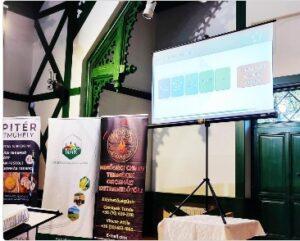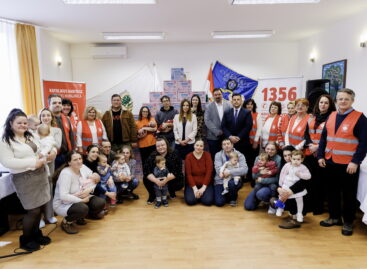Reliable quality in short
The short supply chain (REL) serves social, economic and environmental sustainability, which is why it is becoming increasingly prominent in domestic and European Union politics, stated Dr. Beáta Olga Felkai, Deputy State Secretary responsible for the food industry and trade policy of the Ministry of Agár, at the Day of REL Organizers in Békéscsaba.

(Photo: AM)
The deputy state secretary explained that by purchasing local products, the sales chain can be significantly shortened, and on the other hand, it helps rural producers to get to the market quickly, because the consumer can get domestic, fresh, tasty and quality food from a reliable source directly from the producer. He added that the REL is in line with the strategic directions of the Common Agricultural Policy (CAP). The basic objective of the CAP is to ensure a fair living for agricultural producers. And REL encourages the actors of the local economy to cooperate at the level of local communities.
Dr. Beáta Olga Felkai explained that the development of short food supply chains basically depends on the coordination of three areas
These three areas are reducing the lack of time, increasing knowledge transfer and creating a supportive public administration environment. It is extremely important to change the attitude towards both production and consumption. For example, changes are needed in the production and consumption of products, or more value must be produced using less material and energy. The deputy state secretary also mentioned that, based on the decree of December 2020, in Hungary, at least 60 percent from 2022, and at least 80 percent from 2023, must be based on products procured in the short supply chain of public catering, as well as on local food products. The dual purpose of the new regulation is clearly positive: on the one hand, it contributes to the fact that high-quality meals made from domestic food and raw materials are put on the table of consumers in public catering, and on the other hand, it also helps the domestic food industry, manufacturers, and producers to sell their products more reliably and predictably, he added.
AM
Related news
Protein, gut health and mental wellbeing – these trends will shape global food innovation in 2026
🎧 Hallgasd a cikket: Lejátszás Szünet Folytatás Leállítás Nyelv: Auto…
Read more >European Court of Auditors: EU Commission proposals affecting the common agricultural policy may cause uncertainty
🎧 Hallgasd a cikket: Lejátszás Szünet Folytatás Leállítás Nyelv: Auto…
Read more >








